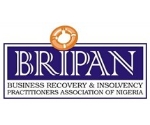Procedure for converting debt to equity in Nigeria
Debt-to-equity financing plays a significant role in the financial landscape of Nigeria. As the nation strives for economic development, understanding the dynamics of financial activities, including the capital structure of institutions and corporations, becomes crucial. Debt-to-equity financing is an essential aspect of this structure and warrants thorough examination.
In its simplest form, debt refers to financial obligations owed by one entity to another, encompassing loans, goods or services. Total debt represents the aggregate of short-term and long-term liabilities. On the other hand, equity pertains to ownership interests, typically in the form of shares or stocks. Equity investment involves purchasing and holding shares in anticipation of returns from dividends and capital gains, granting shareholders voting rights.
Debt-to-equity financing arises when a corporation seeks capital with the expectation of significant returns, necessitating repayment of the capital sourced. Repayment terms and conditions are typically agreed upon between the debtor and the creditor. However, if a company encounters difficulties in adhering to the initially agreed-upon repayment structure, debt-to-equity financing can provide an alternative arrangement, often termed a “compromise of arrangement.”
In Nigeria, the procedure for debt-to-equity financing typically involves the following steps:
- Assessment of Financial Situation: The debtor company must evaluate its financial position and determine if debt-to-equity financing is a viable solution for its repayment difficulties. This assessment includes analyzing the company’s share capital and determining if it can accommodate the debt conversion.
- Negotiation and Agreement: The debtor and creditor negotiate the terms of the debt-to-equity conversion. This includes determining the proportion of debt that will be converted into equity and any adjustments to the existing repayment structure. The terms are documented in a legally binding agreement.
- Shareholder Approval: If the debtor company’s share capital is insufficient to cover the debt, it needs approval from its shareholders to increase the share capital. This typically involves convening a general meeting of shareholders, presenting the proposal, and obtaining their consent through a resolution.
- Registration with the Corporate Affairs Commission (CAC): Once the shareholders approve the increase in share capital, the debtor company must register the changes with the Corporate Affairs Commission. This involves filing the necessary documents and paying the required registration fees. The CAC will update the company’s records to reflect the increased share capital.
- Debt Conversion: After completing the registration process, the debt can be officially converted into equity. This is typically done through the issuance of new shares to the creditor, proportional to the agreed-upon conversion ratio. The creditor becomes a shareholder in the company.
- Regulatory Compliance (for foreign investors): If the debt-to-equity financing involves foreign investors, additional regulatory compliance steps are necessary. The issuance of a Certificate of Capital Importation (CCI) is required for foreign investment in Nigeria. The foreign investor must obtain or convert their existing CCI to reflect the equity investment. This process may require coordination with the Central Bank for regularization.
- Tax Considerations: Throughout the debt-to-equity financing process, both parties must carefully consider the tax implications. It is essential to ensure compliance with applicable tax laws and regulations to avoid any adverse tax consequences. Consulting with tax professionals or advisors is recommended to navigate the tax aspects of the arrangement.
It is important to note that the specific procedure may vary depending on the circumstances of each case, the parties involved, and any additional regulatory requirements. Engaging legal and financial professionals experienced in debt-to-equity financing can help ensure compliance with all relevant laws and facilitate a smooth process.
By following these steps and adhering to the necessary legal and regulatory requirements, companies in Nigeria can pursue debt-to-equity financing as a potential solution to financial difficulties and create a more sustainable capital structure.
In conclusion, while debt-to-equity financing offers a viable option for financing corporations and companies in Nigeria, it demands careful evaluation due to its potential challenges. Considering the prevailing market conditions and the prevalence of loan agreements burdened by devaluation, debt-to-equity financing can help address financial difficulties and leverage the potential for increased returns on investment. However, comprehensive analysis and consideration of the specific circumstances are imperative to mitigate risks and ensure a fair and mutually beneficial arrangement for all parties involved.







